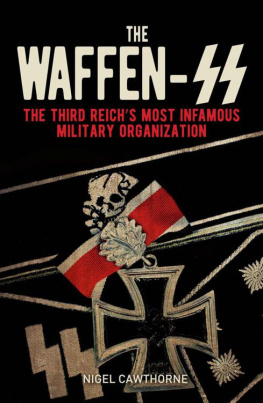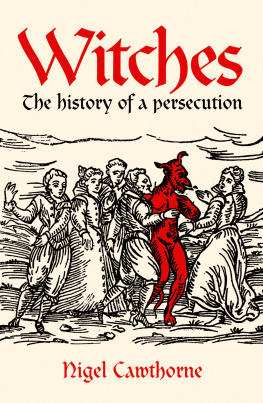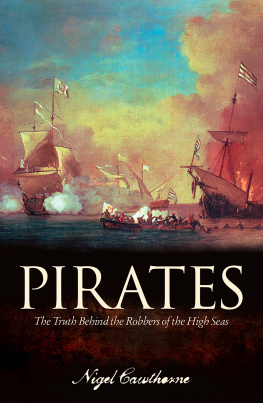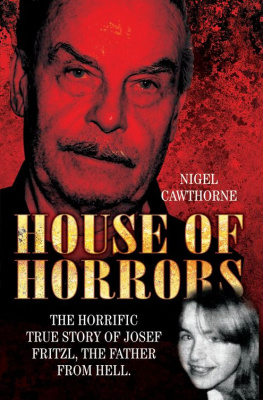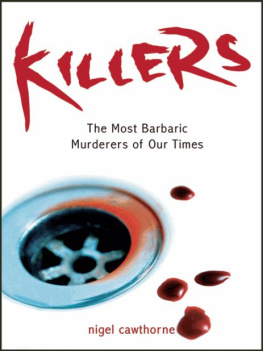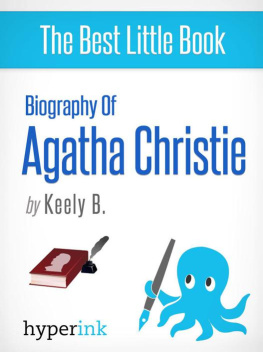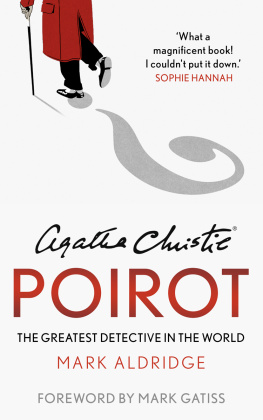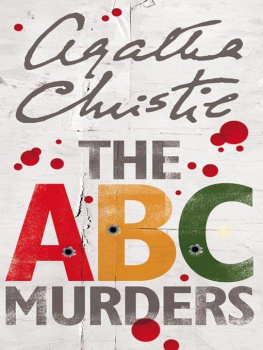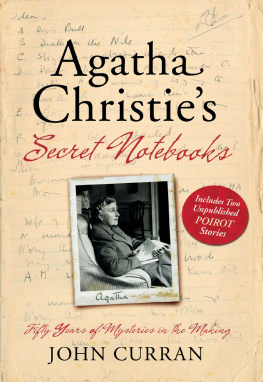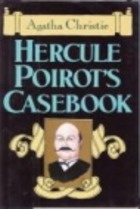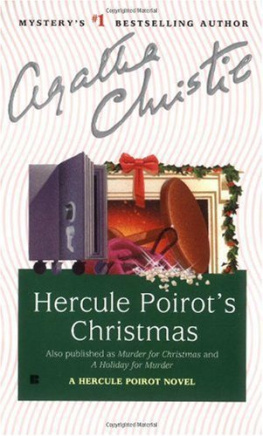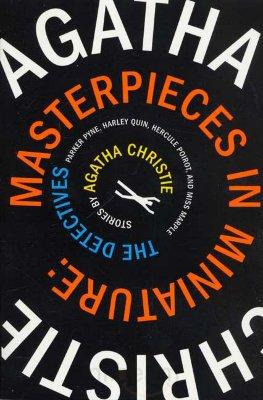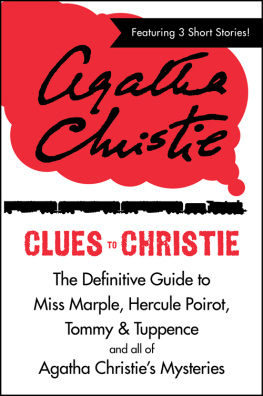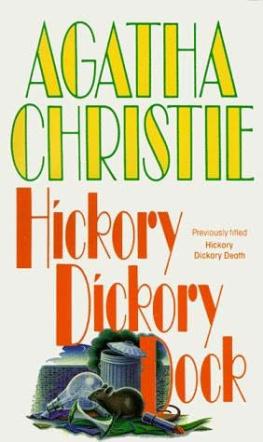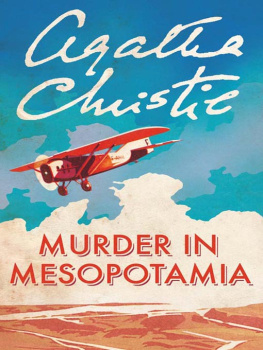Nigel Cawthorne is the author of over a hundred and fifty books including A Brief History of Robin Hood, A Brief Guide to James Bond, A Brief History of Sherlock Holmes, A Brief Guide to Jeeves and Wooster, A Brief Guide to J. R. R. Tolkien, Jack the Rippers Secret Confession, House of Horrors, The Mammoth Book of the Mafia, Against Their Will and a forthcoming biography of Agatha Christies one-time rival John Creasey.
Recent titles in the series
A Brief Guide to Star Trek
Brian J. Robb
A Brief Guide to James Bond
Nigel Cawthorne
A Brief Guide to Jane Austen
Charles Jennings
A Brief Guide to Secret Religions
David Barrett
A Brief History of Angels and Demons
Sarah Bartlett
A Brief History of Bad Medicine
Robert Youngston
A Brief History of France
Cecil Jenkins
A Brief History of Slavery
Jeremy Black
A Brief History of Sherlock Holmes
Nigel Cawthorne
A Brief Guide to J. R. R. Tolkien
Nigel Cawthorne
A Brief Guide to Jane Austen
Charles Jennings
A Brief Guide to C. S. Lewis
Paul Simpson
A Brief History of the Private Life of Elizabeth II
Michael Patterson
A Brief Guide to Jeeves and Wooster
Nigel Cawthorne
A Brief History of Superheroes
Brian J. Robb
A Brief History of the Spy
Paul Simpson
A Brief Guide to Oz
Paul Simpson
A BRIEF GUIDE TO
AGATHA CHRISTIE
Nigel Cawthorne

Constable & Robinson Ltd
5556 Russell Square
London WC1B 4HP
www.constablerobinson.com
First published in the UK by Robinson,
An imprint of Constable & Robinson Ltd, 2014
Copyright Nigel Cawthorne 2014
The right of Nigel Cawthorne to be identified as the author of this work has been asserted by him in accordance with the Copyright, Designs and Patents Act 1988
All rights reserved. This book is sold subject to the condition that it shall not be reproduced in whole or in part, in any form or by any means, electronic or mechanical, including photocopying, recording, or by any information storage and retrieval system now known or hereafter invented, without written permission from the publisher and without a similar condition, including this condition, being imposed on the subsequent purchaser.
A copy of the British Library Cataloguing in
Publication data is available from the British Library
ISBN 978-1-47211-057-2 (paperback)
ISBN 978-1-47211-069-5 (ebook)
1 3 5 7 9 10 8 6 4 2
First published in the United States in 2013 by Running Press Book Publishers,
A Member of the Perseus Books Group
All rights reserved under the Pan-American and International Copyright Conventions
This book may not be reproduced in whole or in part, in any form or by any means, electronic or mechanical, including photocopying, recording, or by any information storage and retrieval system now known or hereafter invented, without written permission from the publisher.
Books published by Running Press are available at special discounts for bulk purchases in the United States by corporations, institutions, and other organizations. For more information, please contact the Special Markets Department at the Perseus Books Group, 2300 Chestnut Street, Suite 200, Philadelphia, PA 19103, or call (800) 810-4145, ext. 5000, or email .
US ISBN 978-0-7624-5473-0
US Library of Congress Control Number: 2014931617
9 8 7 6 5 4 3 2 1
Digit on the right indicates the number of this printing
Running Press Book Publishers
2300 Chestnut Street
Philadelphia, PA 19103-4371
Visit us on the web!
www.runningpress.com
Typeset by TW Typesetting, Plymouth, Devon
Printed and bound in the UK
CONTENTS
INTRODUCTION
No one is really sure just how many books Agatha Christie has sold, or in how many languages. However, it is thought that she is the number-three bestseller worldwide behind the Bible and Shakespeare. Though her books are largely set in parochial England, she has a following around the world. This may well be because she was free from the pretensions that plague other authors.
I regard my work as of no importance, she said. Ive simply been out to entertain.
Asked where she got her ideas from, she would say that she went to Harrods, or the Army & Navy Store, or Marks & Spencer. The real answer was from her own head. However, she was steeped in literature and culture. Her antecedents are as much Shakespeare, Webster, Tennyson and Wagner as Sir Arthur Conan Doyle and Edgar Allan Poe. She also travelled widely and, through her second husband archaeologist Sir Max Mallowan and his colleagues, knew a great deal about the ancient world.
Although she died nearly forty years ago, she is as popular as she ever was, with the long-running TV series Poirot and Miss Marple airing on both sides of the Atlantic. While the world these two much-loved characters inhabit may appear cosy and middle class, it is heaving with forgery, blackmail, adultery and murder. It is also awash with drugs first with cocaine and morphine, later heroin and, latterly, marijuana. Then there were the guns. Largely these were brought back from the wars but, as we see in The Seven Dials Mystery of 1924, it was still a time when you could pop into Harrods to buy a pistol.
Readers should be warned of the casual racism of the era. The books abound with slighting remarks about Jews, dagos, Chinks, black people and foreigners. However, one must remember that Agatha Christie began writing during the era of Modernism. Indeed she was some eight years younger than Virginia Woolf and James Joyce. So we should now view these racial slights in a Post-Modernist light and grow up about the N word. Yes, she called a book Ten Little Niggers. The word comes up in other books too. It was offensive then and remains so. But we cannot whitewash the past, if you will excuse the pun. And it was not as if Christie was particularly racist herself. In Hickory, Dickory, Death, written in 1955, Poirots secretary Miss Lemon says: Half the nurses in our hospitals seem to be black nowadays... and I understand much pleasanter and more attentive than the English ones.
Whats more, Christie is positively revolutionary in some eyes. In the 1970s, the communist Tupamaros guerrillas in Uruguay adopted Miss Marple as their honorary leader. Inmates of the Buchenwald concentration camps used to perform her plays in the face of the horrors there. Some say that it is the extraordinary simplicity of her characters that appeals. Others say that everyone wants the whole world to be like an English village.
During her lifetime, Christie was pilloried by some intellectuals. But her work has endured, while those of her critics have remained resolutely unheeded. True, the genteel world of country houses and the grand tour between the wars that she portrays is comforting. But her subject matter is life and, more particularly, death. Her characters are motivated by real emotions and the stage they are set upon is just as relevant as Elizabethan England or ancient Greece.
Agatha Christie is, of course, the Queen of Crime, the Duchess of Death. Her books are largely whodunnits, so I have taken great pains not to give away the endings. But if you want to spoil them for yourself, you can look up the plots on Wikipedia.
Nigel Cawthorne
Next page

